https://youtu.be/2g515lMXR18
China holds a commemorative meeting to mark the 110th anniversary of the 1911 Revolution at the Great Hall of the People in Beijing at 10 a.m. on Saturday. Chinese President Xi Jinping, also general secretary of the Communist Party of China Central Committee and chairman of the Central Military Commission, attends the meeting and delivers an important speech. #1911Revolution
https://youtu.be/QvXEc7oaKgI
Xi: The best way we commemorate Sun Yat-sen is to carry forward his lofty spirit
Xi stresses peaceful reunification, calls Taiwan secessionists 'serious threat' to national rejuvenation
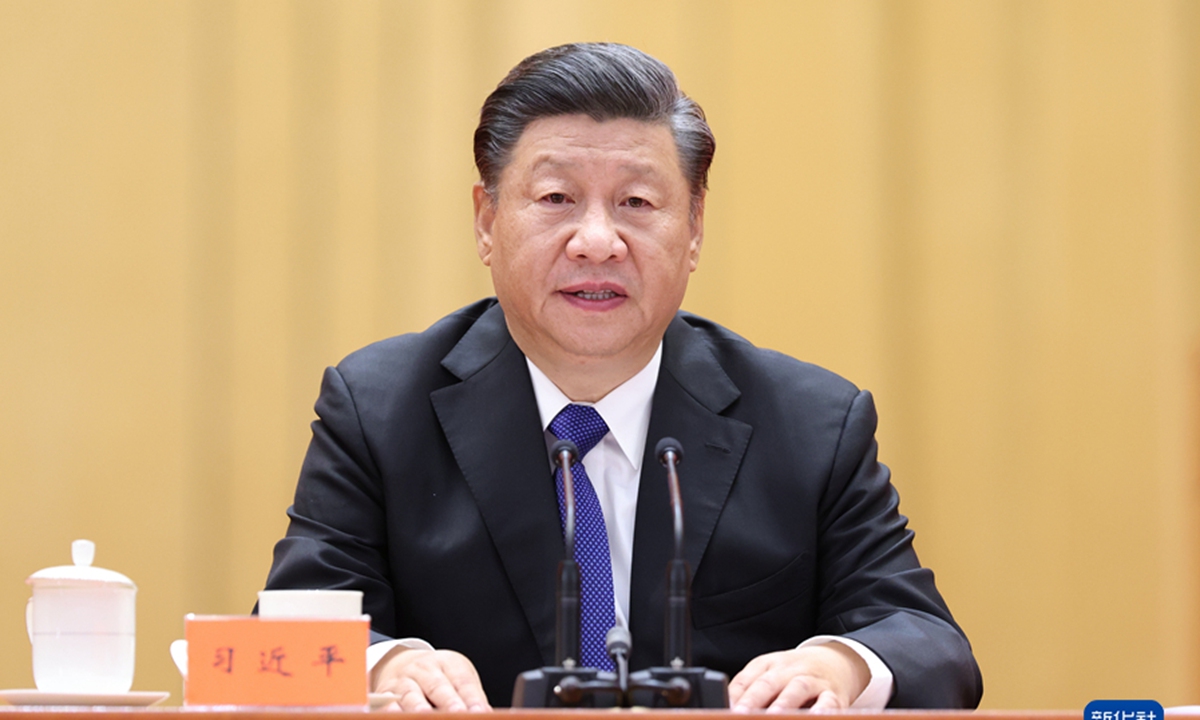
Chinese President Xi Jinping, also general secretary of the Communist Party of China Central Committee and chairman of the Central Military Commission, delivers an important speech at a commemorative meeting marking the 110th anniversary of the Revolution of 1911 at the Great Hall of the People in Beijing, capital of China, Oct 9, 2021.Photo:Xinhua
At a gathering marking the 110th anniversary of the 1911 Revolution held at the Great Hall of the People in Beijing on Saturday, Chinese President Xi Jinping said the Taiwan question will be resolved along with national rejuvenation and warned that secessionists are a serious threat to that mission, and that those who betray the country will face the trial of history.
Analysts from both the Chinese mainland and Taiwan told the Global Times that Xi's remarks sent a clear and strong signal to the secessionist group within the island and foreign forces who are supporting or encouraging Taiwan secessionism - the national reunification of China will and must be realized and no one can stop the process, the Chinese mainland has both strength and unshakeable determination to realize this common hope for the whole Chinese nation.
The Communist Party of China (CPC), who inherited the 1911 Revolution leader Sun Yat-sen's idea and unfulfilled mission in national rejuvenation and reunification, wants to address Taiwan question by peaceful means, but whether the question to be solved peacefully or not, the secessionists who betray and try to separate the country, will eventually be punished, commentators noted.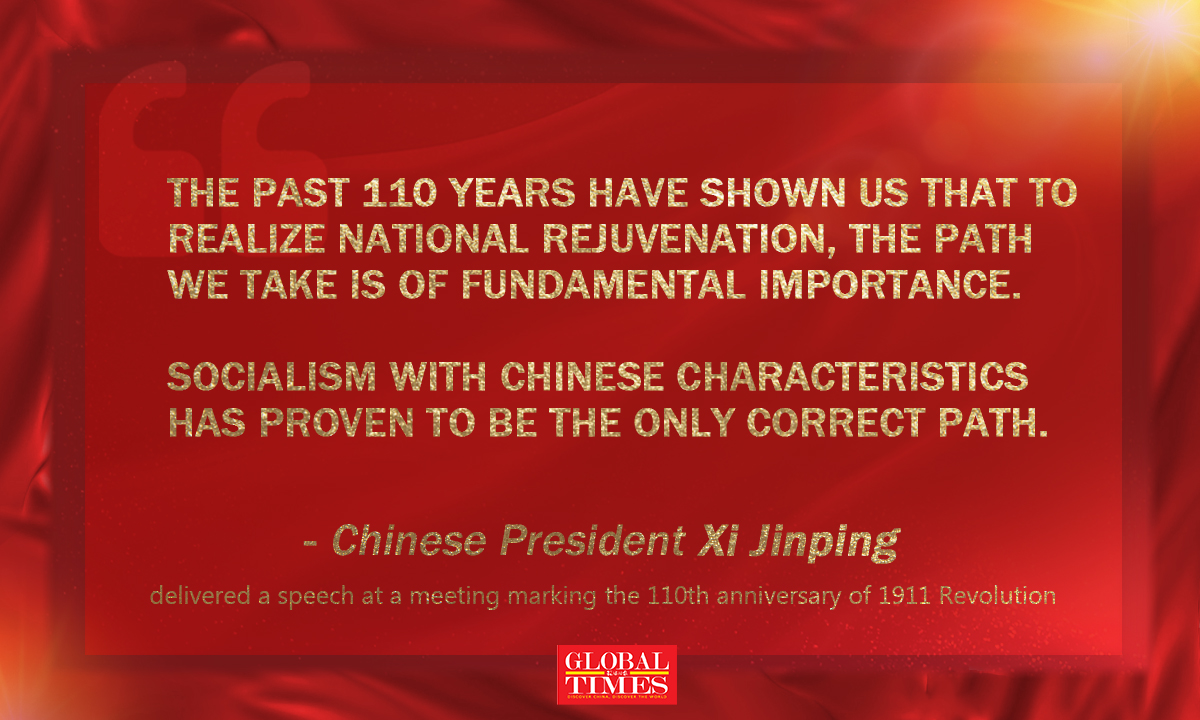
Highlights of Xi's speech at a meeting marking the 110th anniversary of 1911 Revolution Graphic: Xu Zihe/GT
The Revolution of 1911, which was initiated by revolutionists represented by Sun Yat-sen, ended the 2,000 years of imperial rule in China and paved the way for profound social changes and ideological emancipation. Sun is hailed as a great national hero, patriot and a great pioneer of China's democratic revolution, according to Xi's speech.
The aspiration of national revitalization that was deeply held by Sun, longing for a bright future for the Chinese nation that was cherished by the pioneers of the Revolution, and the great dream that the Chinese people have aspired and striven toward in modern times have all become or are becoming a reality, Xi said.
He noted that the 1911 Revolution commemoration will inspire national rejuvenation endeavor.
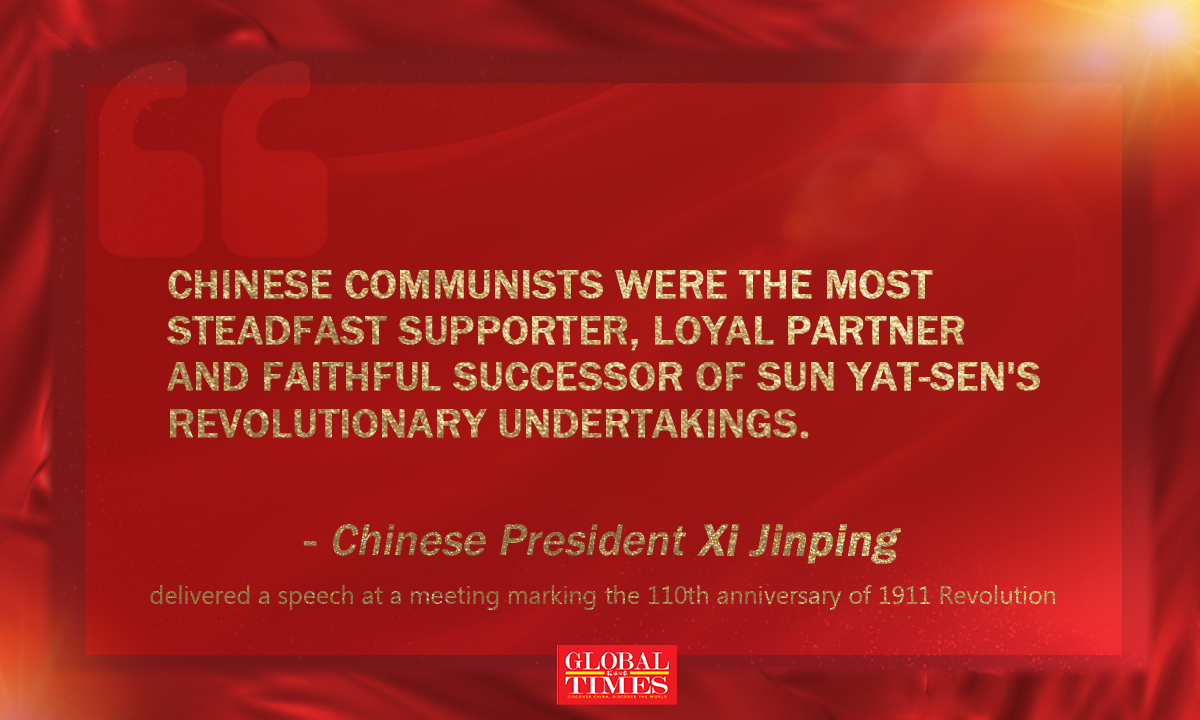 Highlights of Xi's speech at a meeting marking the 110th anniversary of 1911 Revolution Graphic: Xu Zihe/GT
Highlights of Xi's speech at a meeting marking the 110th anniversary of 1911 Revolution Graphic: Xu Zihe/GT
Chinese communists were the most steadfast supporters, loyal partners and faithful successors of Sun, Xi said, noting that the complete reunification will be realized along with the country's national rejuvenation.
Huang Chih-hsien, an attendee from Taiwan who witnessed Xi's speech at the Great Hall of the People and an expert on Taiwan affairs, told the Global Times on Saturday that "it was truly touching when I saw the mainland is sincerely commemorating Sun and the 1911 Revolution, while the Taiwan authorities are trying to forget or stay away from Sun and his political ideals, some of them even trying to cut off ties with the Chinese mainland and Chinese nation." 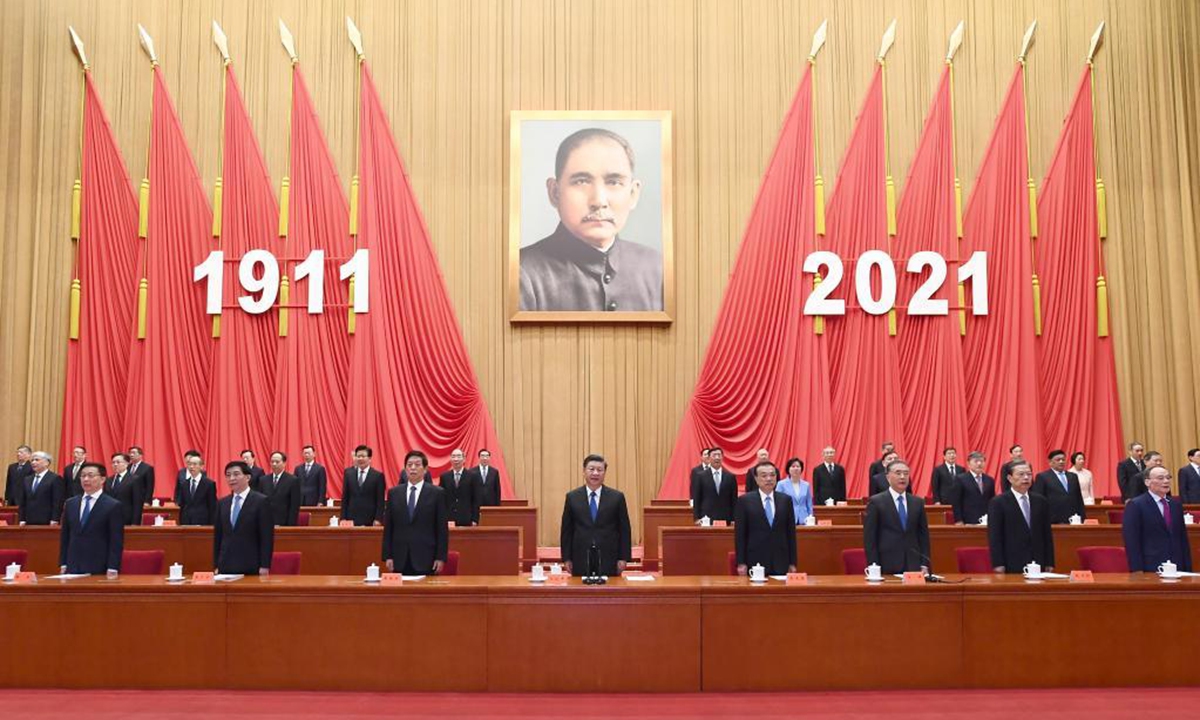
Xi Jinping, Li Keqiang, Li Zhanshu, Wang Yang, Wang Huning, Zhao Leji, Han Zheng and Wang Qishan attend a commemorative meeting marking the 110th anniversary of the Revolution of 1911 at the Great Hall of the People in Beijing, capital of China, Oct 9, 2021.Photo:Xinhua
Sun is the founding father of the Kuomintang (KMT) and the Republic of China (1912-1949), and after Sun's death, his successor Chiang Kai-shek betrayed the revolution and Sun's policy to work with the CPC, and launched massacres and a civil war against the Communist Party of China (CPC). Eventually the KMT was defeated by the CPC and escaped to Taiwan in 1949.
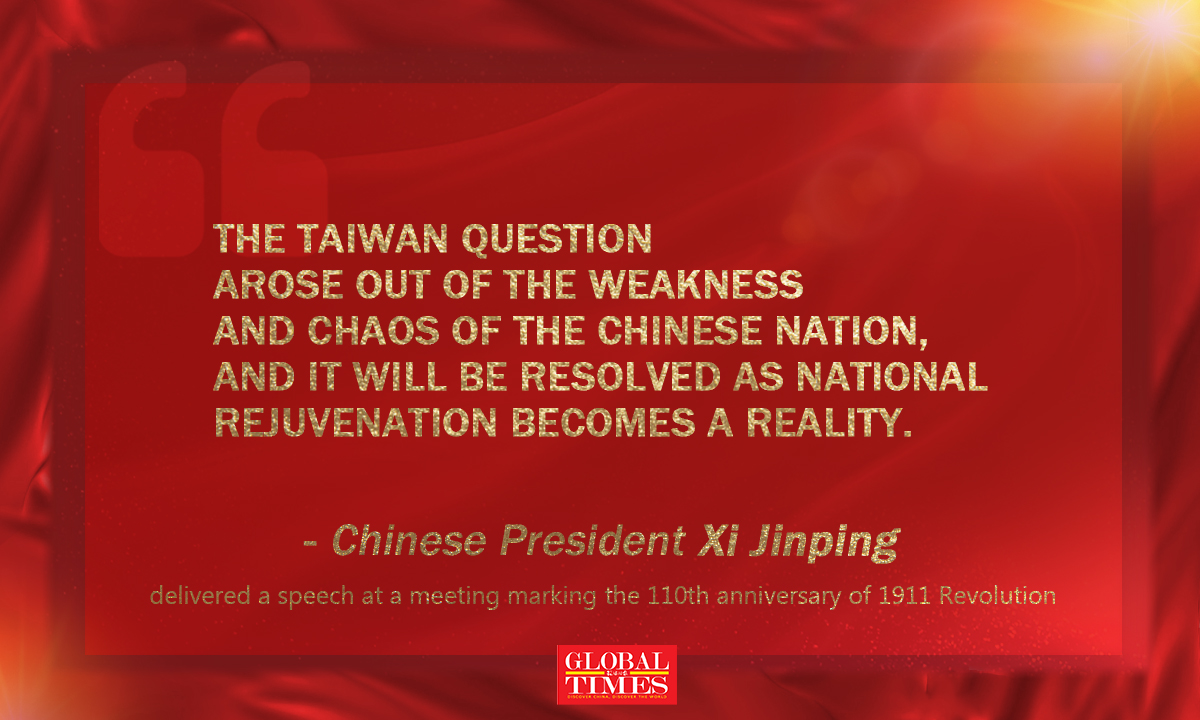 Highlights of Xi's speech at a meeting marking the 110th anniversary of 1911 Revolution Graphic: Xu Zihe/GT
Highlights of Xi's speech at a meeting marking the 110th anniversary of 1911 Revolution Graphic: Xu Zihe/GT
Warning to secessionists
National reunification by peaceful means best serves the interests of the Chinese nation as a whole, including compatriots in Taiwan, Xi remarked at the gathering.
"Compatriots on both sides of the Taiwan Straits should stand on the right side of history and join hands to achieve China's complete reunification and the rejuvenation of the Chinese nation," Xi said.
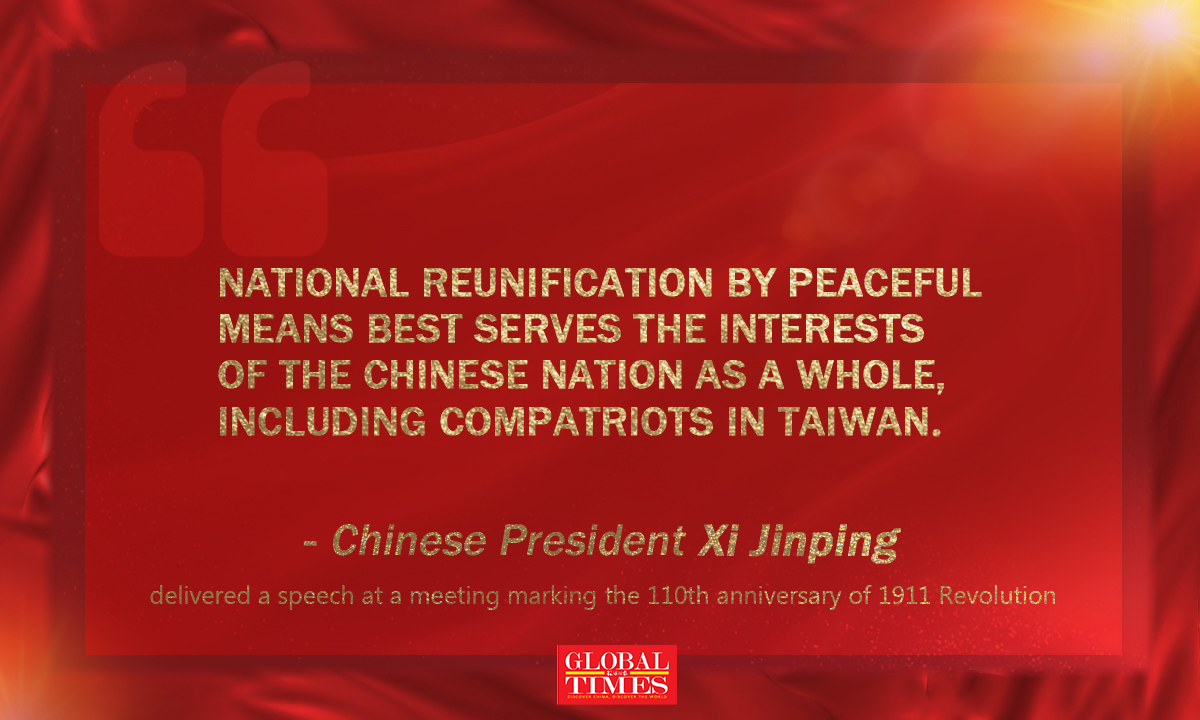
Highlights of Xi's speech at a meeting marking the 110th anniversary of 1911 Revolution Graphic: Xu Zihe/GT
It has become a common practice for the Chinese mainland to solemnly commemorate the Revolution of 1911 at its decadal anniversaries such as the 100th and the 110th anniversaries, but this time, Xi delivered very strong and sharp remarks with a clear message to "Taiwan independence" secessionists, Yok Mu-ming, former president of the pro-reunification New Party of Taiwan, told the Global Times on Saturday.
"If those secessionists don't stop, the mainland will take relevant measures," Yok said. Yok even predicted that the Taiwan question "will be resolved within two years."
He also mentioned on his personal social media accounts earlier that the deadline for solving the Taiwan question will be 2024. "Hopefully, we'll embrace the reunification and the national rejuvenation together."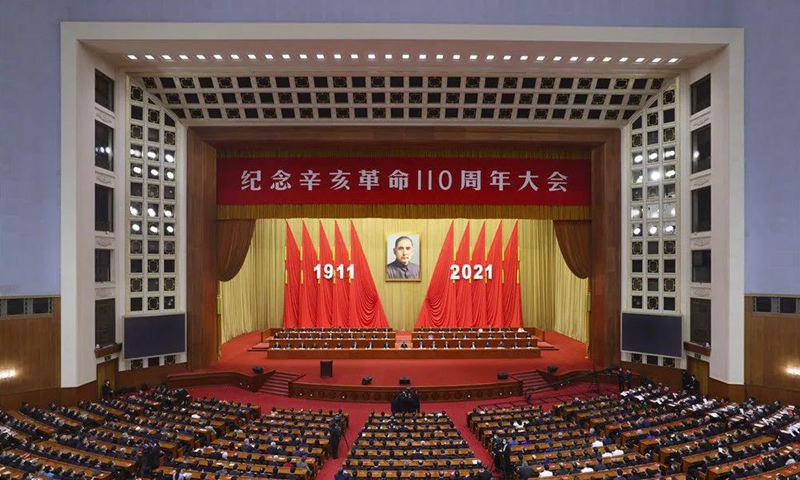
A commemorative meeting marking the 110th anniversary of the Revolution of 1911 is held at the Great Hall of the People in Beijing, capital of China, Oct 9, 2021.
A Beijing-based expert on Taiwan affairs who asked for anonymity said the CPC and the Chinese mainland have repeatedly shown great patience and sincerity in solving the Taiwan question peacefully, and that Xi's latest remark is also signaling to compatriots in Taiwan, as well as the international community, that the mainland's sincerity and policy remains unchanged so far.
But unfortunately, the current situation is like an old saying in China, "the trees prefer stillness but the wind will not cease," he said.
"There are some forces, especially the separatist ruling Democratic Progressive Party on the island and the US that are encouraging the DPP to seek secession, are trying to challenge the mainland's sincerity and patience by increasing the degree of provocation, including strengthening military cooperation and diplomatic interactions," said Li Fei, a professor with the Taiwan Research Institute at Xiamen University.
"All of these dangerous acts have challenged the bottom-line of the mainland and seriously offended the Chinese people, the US and the Taiwan secessionists are trying to hijack the people on the island to seek their own interests under the risk of war," Li said.
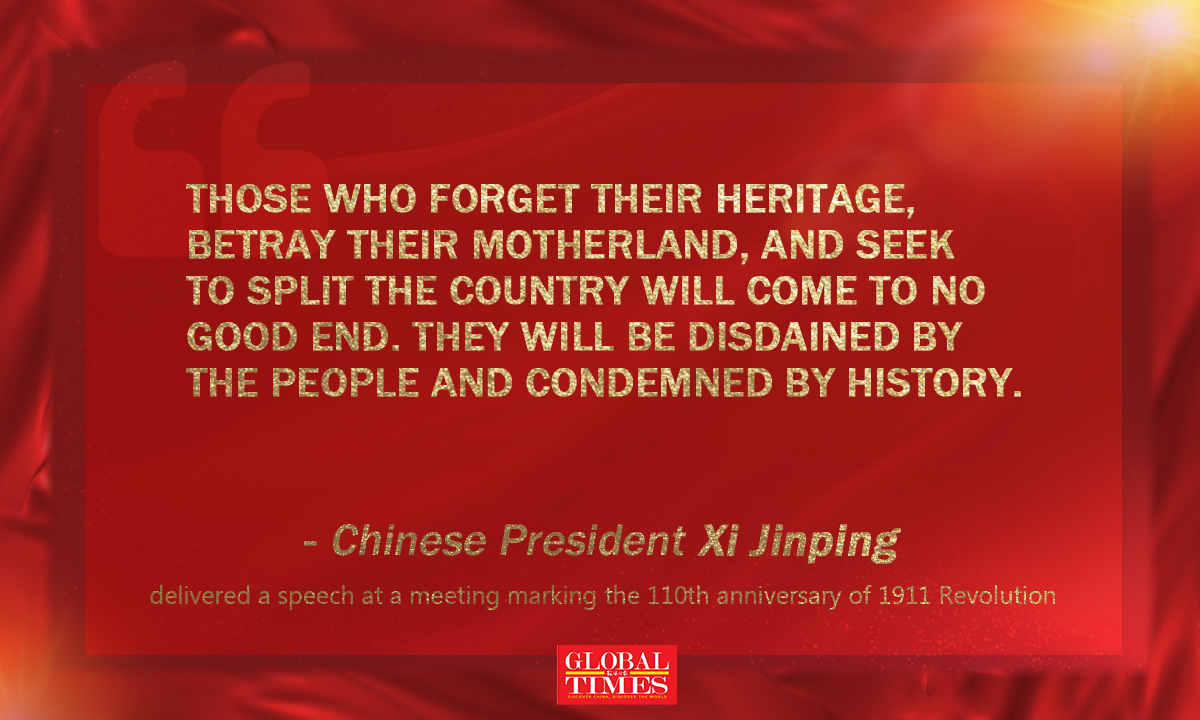
Highlights of Xi's speech at a meeting marking the 110th anniversary of 1911 Revolution Graphic: Xu Zihe/GT
Xi sent severe warning to the secessionists at his speech that, "Taiwan independence" secessionism is the biggest obstacle for the national reunification, and also a serious threat to national rejuvenation. "Anyone who intends to betray and separate the country will be distained by the people and judged by the history," he said, receiving rapturous applause from the audience.
Three long rounds of applause sounded through the Great Hall of the People when Xi mentioned Taiwan question and sent warning to the secessionists.
The anonymous expert in Beijing said this is a strong signal and warning to agitators on the island and leaders of the DPP and other secessionists - whether the Taiwan question to be resolved by peaceful mean or non-peaceful mean, secessionists will be judged and punished eventually.
"Maybe there is no need to wait that long, some of them might get punished during the process of the national reunification. We, the mainland, have enough strength and determination to make them pay for their crime of secessionism," he said.
Huang who hails from Taiwan said the political parties on the island today should also be loyal to Sun's idea, but unfortunately, they have failed to inherit the mission, and some of them even try to forget Sun, to betray his dream of national rejuvenation and reunification and to serve US hegemony to contain mainland and seek secessionism.
The DPP and the authorities under its control even "try to stop and threaten the people from Taiwan from attending the gathering for commemorating the 1911 Revolution," Huang said, stressing that "this is truly laughable," urging people in Taiwan to "wake up" and see "who is walking on the path started by Sun and who has betrayed Sun's ideals."
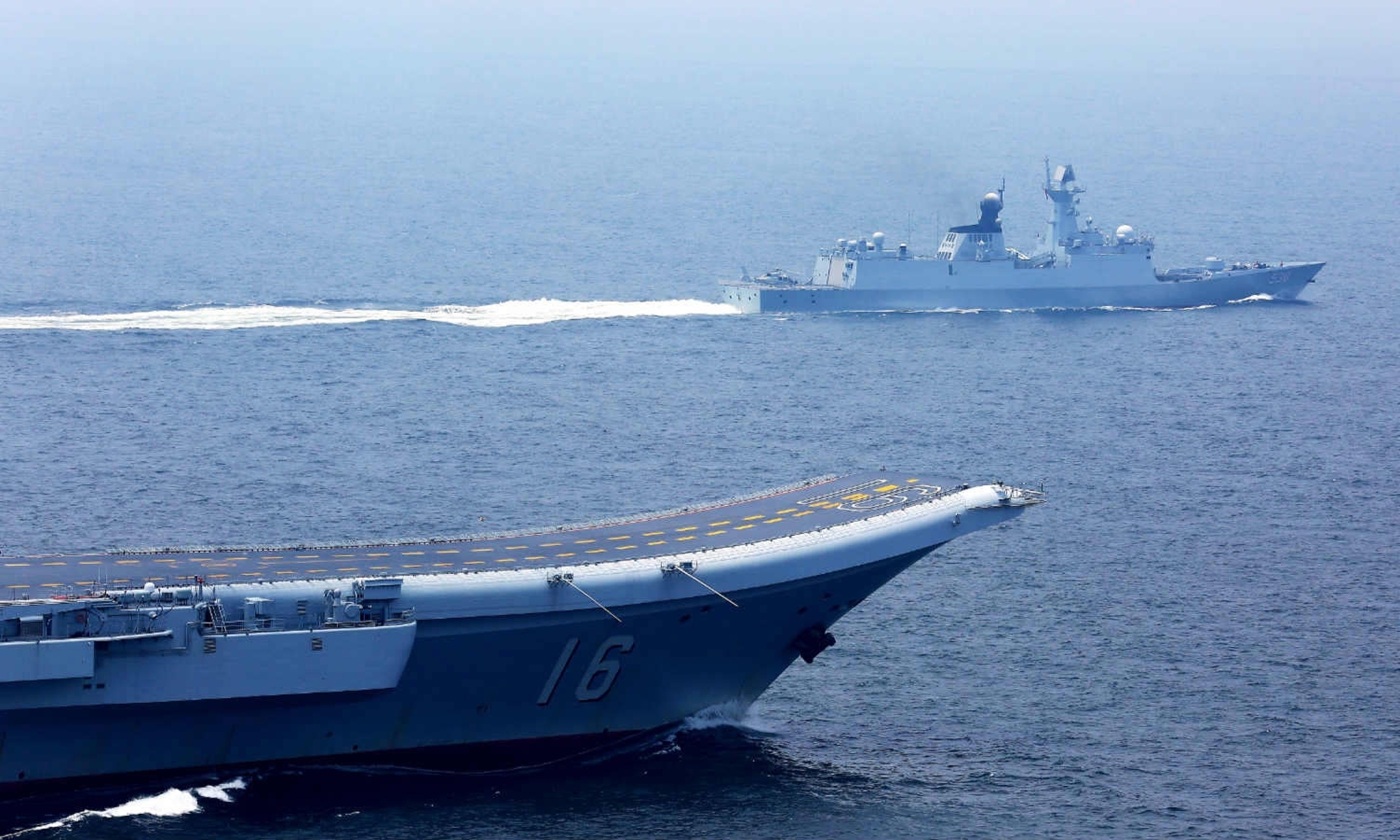 Vessels in the Taiwan Straits, July 20, 2017. Photo:CGTN
Vessels in the Taiwan Straits, July 20, 2017. Photo:CGTN
Destined to be reunified
The ceremony was held amid rising tensions across the Taiwan Straits after US media reported that there were two dozen US troops secretly deployed on the island of Taiwan, helping to train local troops while the secessionist DPP has been colluding with external forces in escalating the confrontation by engaging in salami-slicing tactics.
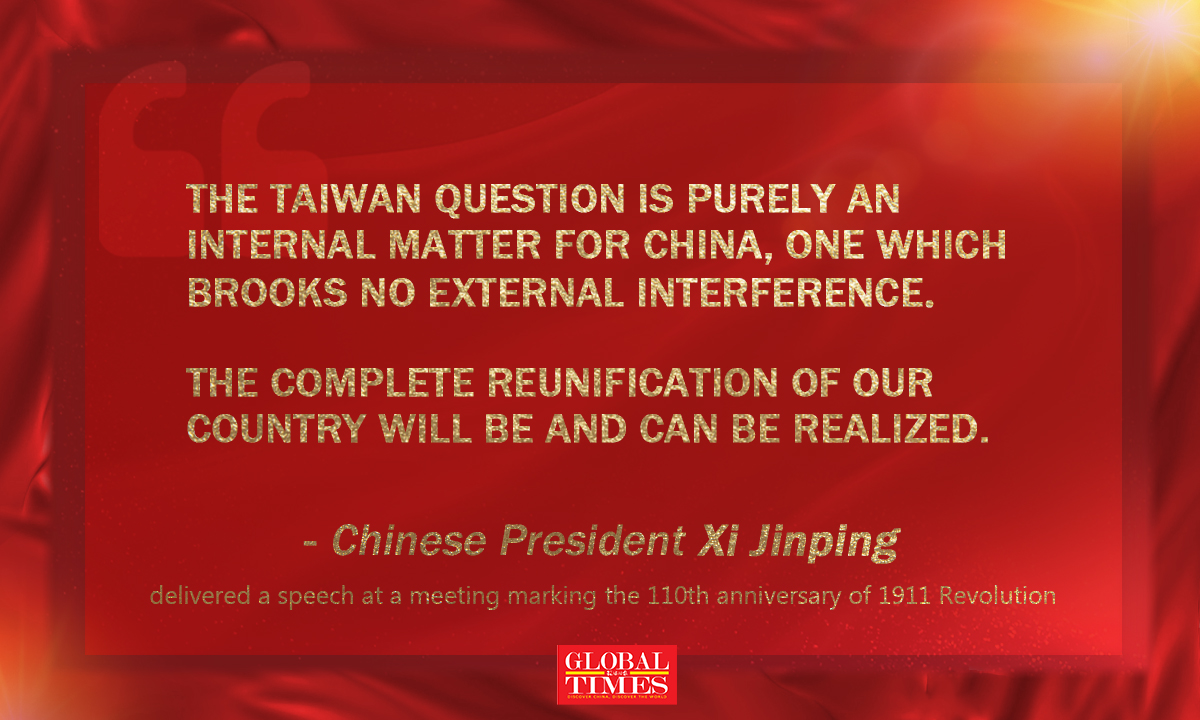 Highlights of Xi's speech at a meeting marking the 110th anniversary of 1911 Revolution Graphic: Xu Zihe/GT
Highlights of Xi's speech at a meeting marking the 110th anniversary of 1911 Revolution Graphic: Xu Zihe/GT
Xi emphasized that the Taiwan question is a Chinese internal matter, which can't be interfered by any external forces. Nobody should underestimate Chinese people's determination, will and capability in safeguarding sovereignty and territorial integrity.
The Taiwan question arose out of the weakness and chaos of the Chinese nation and will be resolved as national rejuvenation becomes a reality, Xi said, noting that the historical mission of achieving complete reunification will be realized and must be realized.
Li said with the increasing of China's national strength, the difficulties in realizing national reunification or resolving Taiwan question will be reduced day by day, whether for peaceful solution or the non-peaceful ones.
"Although the US is still being vague on its policy on the matter and trying to use Taiwan question as a card to contain China, one day, when the mainland decides to solve the question once and for all, Washington will abandon the Taiwan secessionists and run away, just like abandoning the former Afghan government and Hong Kong rioters and separatists," said the anonymous Beijing-based expert.
Root cause of tensions
Mainland's high-profile commemoration of the 110th anniversary of 1911 Revolution sparked slanderous comments from DPP authorities, which called the commemoration "distortion of history."
In response to such comments, Ma Xiaoguang, spokesperson of Taiwan Affairs Office of the State Council, said on Saturday that the DPP's provocation in seeking secession is the root cause of current tensions across the Taiwan Straits, and biggest threat to regional peace and stability.
"Taiwan independence" secessionism is a dead end, and has nothing to do with so-called "democracy and freedom."
"DPP authorities insist on their secessionist stance and gang up with foreign forces to betray the interests of the Chinese nation. These behaviors are completely against the spirit, moral integrity and unfulfilled wishes of Sun Yat-sen. What qualification do they think they have to make comment on Sun and 1911 Revolution?" Ma said.
Tsai’s Double Ten speech a political farce
Secessionist DPP cannot abduct will of 23 million Taiwan compatriots
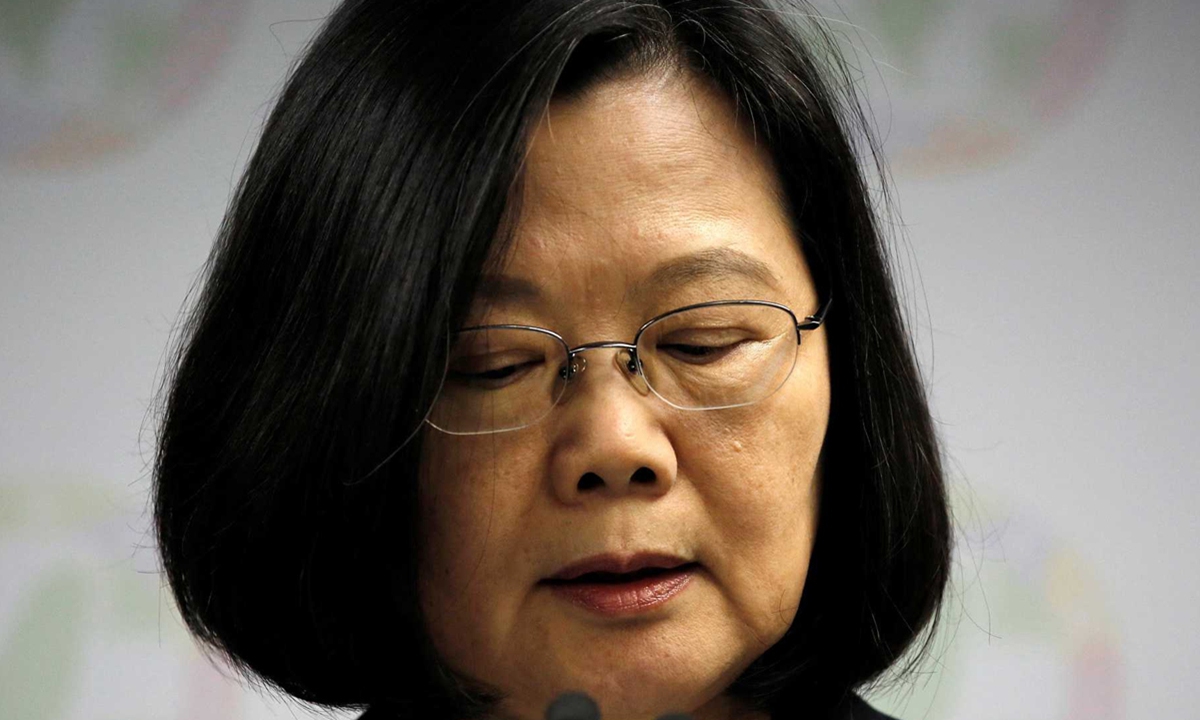 Tsai Ing-wen Photo:VCG
Tsai Ing-wen Photo:VCGOne day after Chinese President Xi Jinping warned Taiwan secessionists and stressed that the Taiwan question will be resolved along with national rejuvenation in his speech on Saturday marking the 110th anniversary of the 1911 Revolution, Taiwan regional leader Tsai Ing-wen continued to deceive the international community and Taiwanese people by hiding the truth that secessionist authorities on the island are the root cause of cross-Straits tensions.
Held under the theme "Forming a democratic alliance and collecting friends from all over the world," this year's Double Ten Day, a public holiday in the island of Taiwan originally meant to commemorate the Chinese Revolution of October 10, 1911, has been seen by observers across the Straits as yet another farce staged by the ruling secessionist Democratic Progressive Party (DPP) and its leader Tsai that serves to promote their desinization agenda and daydream of a "two-state theory."
In an obvious betrayal of 1911 Revolution leader Sun Yat-sen's idea and unfulfilled mission of Chinese national rejuvenation and reunification, the DPP leaders including Tsai herself and Taiwan's "Legislative Yuan" leader Yu Shyi-kun did not mention Sun's name or spirit even once on Thursday morning, and Tsai referred to the region with the awkward term "Republic of China Taiwan."
Sun is the founding father of the Kuomintang (KMT) and the Republic of China (1912-1949), and after Sun's death, his successor Chiang Kai-shek betrayed the revolution and Sun's policy of working with the Communist Party of China (CPC), and launched massacres and a civil war against the CPC. Eventually, the KMT was defeated by the CPC and fled to the island of Taiwan in 1949.
On Saturday, at a high-profile gathering marking the 110th anniversary of the 1911 Revolution held at the Great Hall of the People in Beijing, Chinese President Xi said the Taiwan question will be resolved along with national rejuvenation and warned that secessionists are a serious threat to that mission, and that those who betray the country will face the trial of history.
Xi emphasized that the Taiwan question is a Chinese internal matter that no external forces can interfere with. Nobody should underestimate the Chinese people's determination, will and capability in safeguarding sovereignty and territorial integrity, he said.
In Sunday's speech, Tsai didn't state the fact that this year's Double Ten Day mark the 110th anniversary of the 1911 Revolution during her speech on Sunday morning, but only stressed how the "country" had advanced from poverty to prosperity in the past "72 years" (since the Republic of China regime fled to the island of Taiwan in 1949), and it was the faith in "ensuring the sovereignty and guarding the homeland" that was the key to supporting the island of Taiwan's survival and fostering of democracy.
Chang Ya-chung, the president of the Sun Yat-sen School in Taiwan and a member of the KMT, Taiwan's major opposition party, viewed Sunday's farce by Tsai and the DPP as an extension of their long time agenda of cutting off the history of Taiwan from the Republic of China's, in denial of the "one-China principle," in order to promote the idea of "two nations."
Tsai also stated Sunday that it is imperative to conduct so-called equal conversation to resolve cross-Straits differences, which is an apparent change of her wording from last year when she called for the Chinese mainland to have "peaceful dialogue" with the island in 2020.
Observers said such changes indicate nothing more than another step further into Tsai and the DPP's secessionist path, which is a dead end. As Tsai refused to acknowledge the 1992 Consensus, jeopardizing the political ground on which the two sides can conduct any talks, the Chinese mainland authority would never accept such proposal of "equal conversation", Chang told the Global Times on Sunday.
Tsai said she hoped for eased ties between the two sides across the Straits, and claimed the island would not make any rash advance, while emphasizing that it would not surrender to pressure either.
She vowed to continue to hone the island's defense capability, display self-defense determination, and make sure no one can force them onto a path laid out by the Chinese mainland.
The DPP leader also outlined plans to make an amendment to the "constitution" that would serve to protect so-called freedom and democracy on the island.
What Tsai and the DPP are trying to achieve here is to destroy the essence of the "constitution", Chang said, noting that Tsai would only follow the steps of previous secessionist leaders such as Lee Teng-hui and Chen Shui-bian to accumulate small changes toward an eventual qualitative change.
Although Tsai has not disclosed details of these "constitutional reforms" on the island, the act itself would open a Pandora's box and lead to steps toward making Taiwan secessionism legitimate, allowing the ruling party to make adjustments at will, Zhang Wensheng, a deputy dean of the Taiwan Research Institute at Xiamen University, told the Global Times on Sunday. "She is rashly advancing secessionism despite claiming a willingness to maintain the status quo with unwavering kindness."
Zhang criticized Tsai's Sunday speech as being filled with resentment against the Chinese mainland and for suggesting the latter was an enemy state, which fully shows the DPP leader's secessionist nature and its agenda of promoting the "two-state theory."
Picturing Taiwan as the front of the Western democratic and free world against the expansion of authoritarian in order to win the support and sympathy of the international community is a complete provocation, Zhang said.
If the DPP authority continues such provocative acts, the mainland will have no choice but take it to the battlefield, he warned.
China's internal affair
Tsai's speech advocates "Taiwan secessionism" and incite confrontation between the two sides of Taiwan Straits, distorting facts and holding the Taiwan public hostage in the name of "consensus and solidarity", while colluding with foreign forces to provoke the mainland and seek secessionism, Ma Xiaoguang, a spokesperson for the Taiwan Affairs Office of the State Council, said in a statement on Sunday night.
"Our crackdown against Taiwan secessionists is targeting the DPP and secessionist forces, rather than Taiwan compatriots. The DPP cannot fool the Taiwan public or the international community by creating bad blood and obscuring the facts," the spokesperson said.
Ma slammed the DPP authority, saying that ever since taking power, it has shown no political ability other than creating conflicts between people and dividing Taiwan society. Trying to package secessionist populism as so-called democracy and freedom, and claiming Taiwan is becoming better and better, the DPP has greatly underestimated the intelligence of the Taiwan public.
The future of Taiwan should be decided by all Chinese people including the 23 million Taiwan compatriots. The DPP cannot abduct the will of 23 million Taiwan people, let alone stop the major trend of historical development, Ma concluded.
The self-deceiving Tsai and other DPP leaders repeatedly hailed the so-called support from the "great democratic allies" and lauded the "helping hands" from countries including the US, Japan, Australia, Czech and Lithuania.
Tsai's failure to handle cross-Straits relations properly is the root cause of the current tense situation and labeling the island as the frontline of the so-called democratic world is self-deceiving and a desperate attempt to fool the 23 million compatriots living on the island so she can extend her political life and benefit the DPP, Chang noted.
How many of the 23 million people living on the island would blindly follow Tsai to fight a war with the Chinese mainland, on what grounds, and how many of its so-called allies could Taiwan really rely on if a cross-Straits war breaks out, said Yang Lixian, a research fellow at the Beijing-based Research Center of cross-Straits Relations.
Two Su-35 fighter jets and a H-6K bomber fly in formation on May 11, 2018. The People's Liberation Army (PLA) air force conducted patrol training over China's island of Taiwan.Photo:China Military
Strength matters
As part of the Sunday event, the armed forces on the island of Taiwan showcased some of its weapons in a parade, including Apache helicopters, F-16V fighter jets and Hsiung Feng III missiles.
Also on Sunday, aircraft of the Chinese People's Liberation Army (PLA) approached the island of Taiwan again, media outlets on the island reported, citing open radio broadcasts and flight path records.
Three PLA aircraft - two J-16 fighter jets and a Y-8 anti-submarine aircraft - entered Taiwan's self-proclaimed southwest air defense identification zone on Sunday, the island's defense authorities said later in the day.
The defense authorities on the island have reported 150 PLA aircraft flying into the island's self-proclaimed air defense identification zone between October 1 and Thursday, the National Day holiday in the Chinese mainland, breaking the record in terms of scale three times in the process.
Also on Sunday, the mainland's China Central Television published a report introducing a recent PLA amphibious landing exercise. The drill, organized by the PLA 73rd Group Army in a sea area south of East China's Fujian Province, which is close to the Taiwan Straits, featured troops conducting beach assaults with charge boats, drones and laser engagement systems, with the aim of comprehensively honing the forces' skills in carrying out such tasks.
The PLA activities again demonstrated the overwhelming advantages the PLA has over the armed forces on the island of Taiwan, which is now also being acknowledged by many on the island, a Chinese mainland military expert who requested anonymity told the Global Times on Sunday.
The island's display of its warplanes, armored vehicles and missiles in the Sunday event, on the other hand, exposed the fact that its best weapons are no match for the Chinese mainland's, when people compare them to what the PLA has displayed in events such as the Airshow China 2021 and the National Day military parade in 2019, the expert said.
Resisting reunification by force will only bring doom more quickly to Taiwan secessionists, the expert said.
The island of Taiwan will finally be reunified with the Chinese mainland.

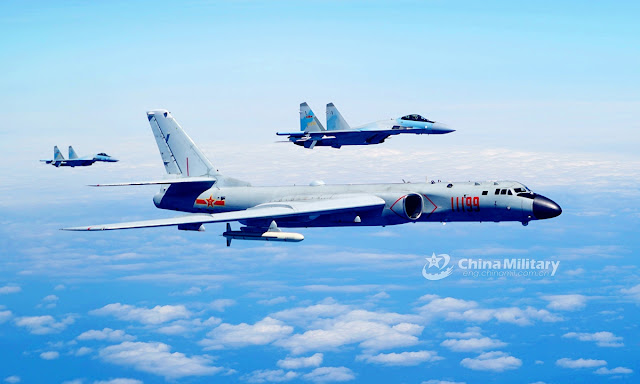

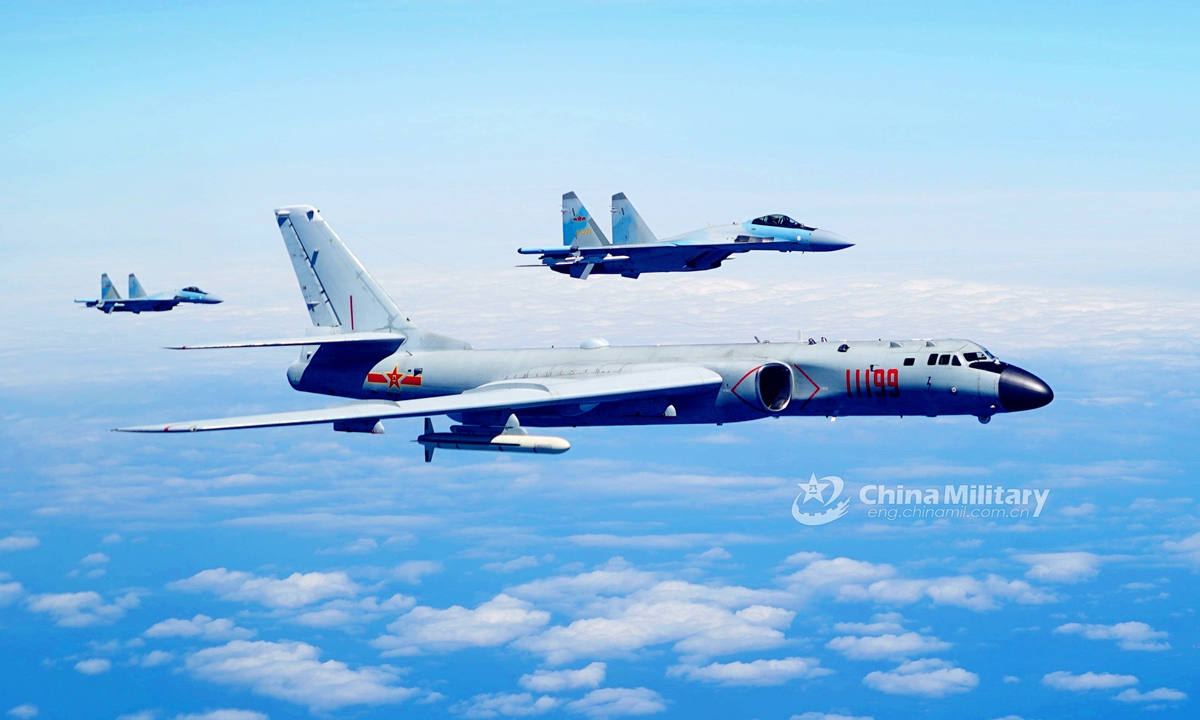

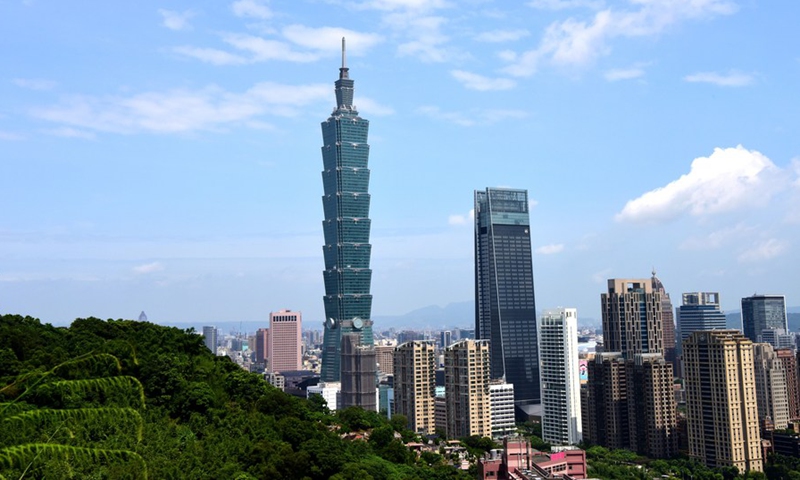
























 A big hit: Xi’s book ‘ The Governance of China’ attracting a reader at the London Book Fair in this file picture. — Xinhua
A big hit: Xi’s book ‘ The Governance of China’ attracting a reader at the London Book Fair in this file picture. — Xinhua